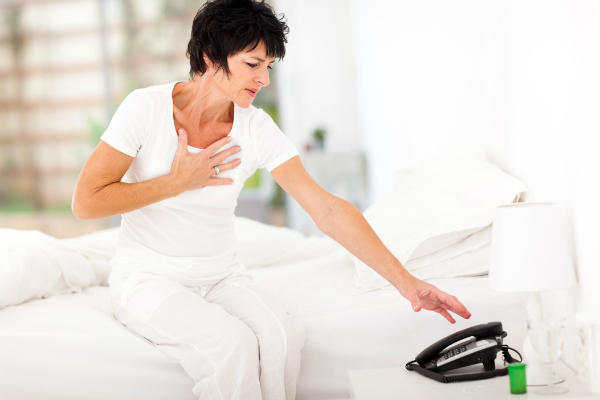While everyone associates chest pain with a heart attack, these subtle symptoms can be signs of trouble in women.
In the US, a person experiences a heart attack every 43 seconds. Heart disease is also the number one killer of women in America. While it is common knowledge that chest pain is one of the signs of a heart attack, women tend to experience different symptoms than men. Many women are surprised to find out they are having a heart attack at all. So, what are the signs of a heart attack in women?
What are a few heart attack symptoms to look for?
Chest pain and heaviness are still the most common signs of a heart attack in both men and women. The feeling that an “elephant is sitting on your chest” is unmistakable. However, women are also more likely to experience nausea, vomiting, dizziness, unusual fatigue, and shortness of breath as their first symptoms of a heart attack.
Women are also more likely to experience neck, jaw, or back pain as the first sign of a problem. Unlike crushing chest pain, these symptoms are often associated with the flu or other illness rather than a cardiac event. As a result, many women assume they are simply ill and neglect to seek medical treatment, resulting in heart damage or even death.
How can I tell if I am having a heart attack or if it is just the flu?
While many signs of a heart attack are also symptoms of the flu, for most women the difference lies in their onset. Where a person with the flu may experience fatigue, then nausea and dizziness over the course of several days, when these symptoms are experienced as a part of a heart attack, their onset tends to be more sudden and severe.
For instance, you may be short of breath if you have chest congestion, but you will be suddenly short of breath for no apparent reason if you are having a heart attack.
What should I do if I am having symptoms?
Whether you believe you have the flu or are confident you are having a heart attack, the only way to be sure is to visit a local medical center for testing and treatment. Swift, decisive action can prevent permanent damage to your heart; a damaged heart can make you more susceptible to a second heart attack or even death. For more information on the finest care that Arkansas has to offer, or to find out more about how to prevent a heart attack, visit ARcare or call at (866) 550-4719.
